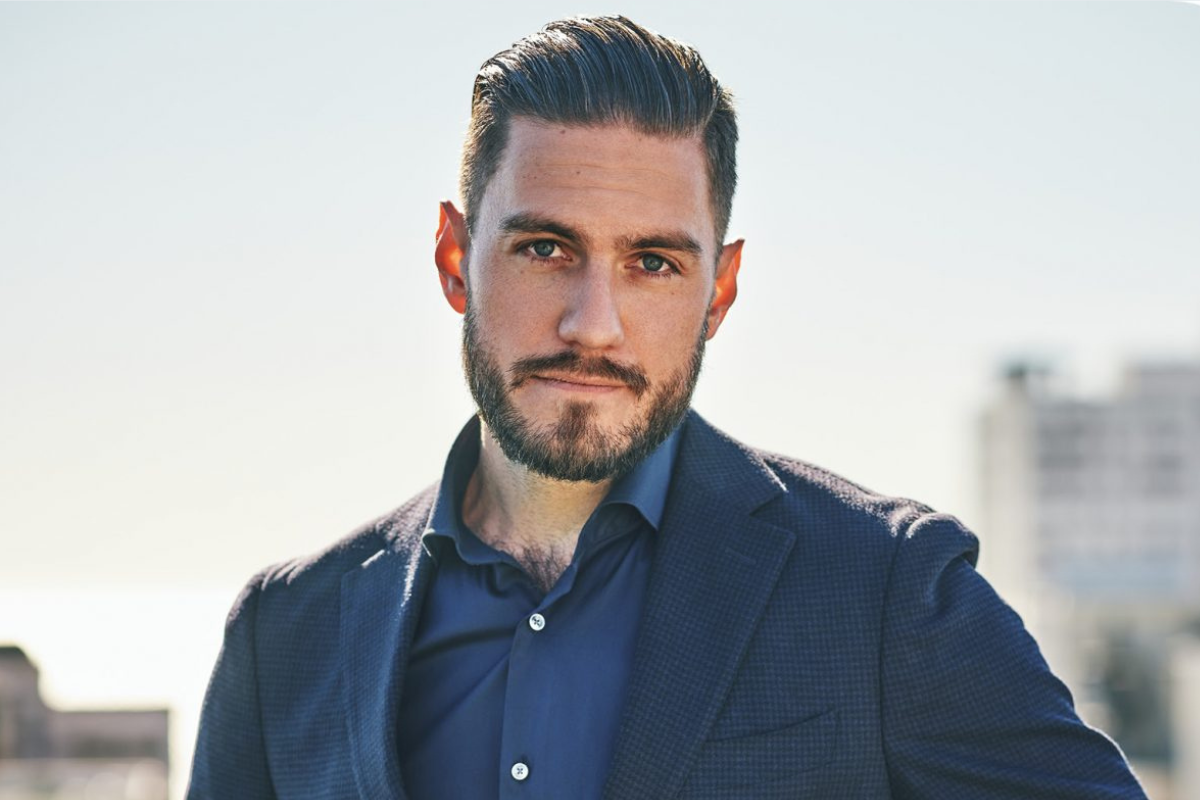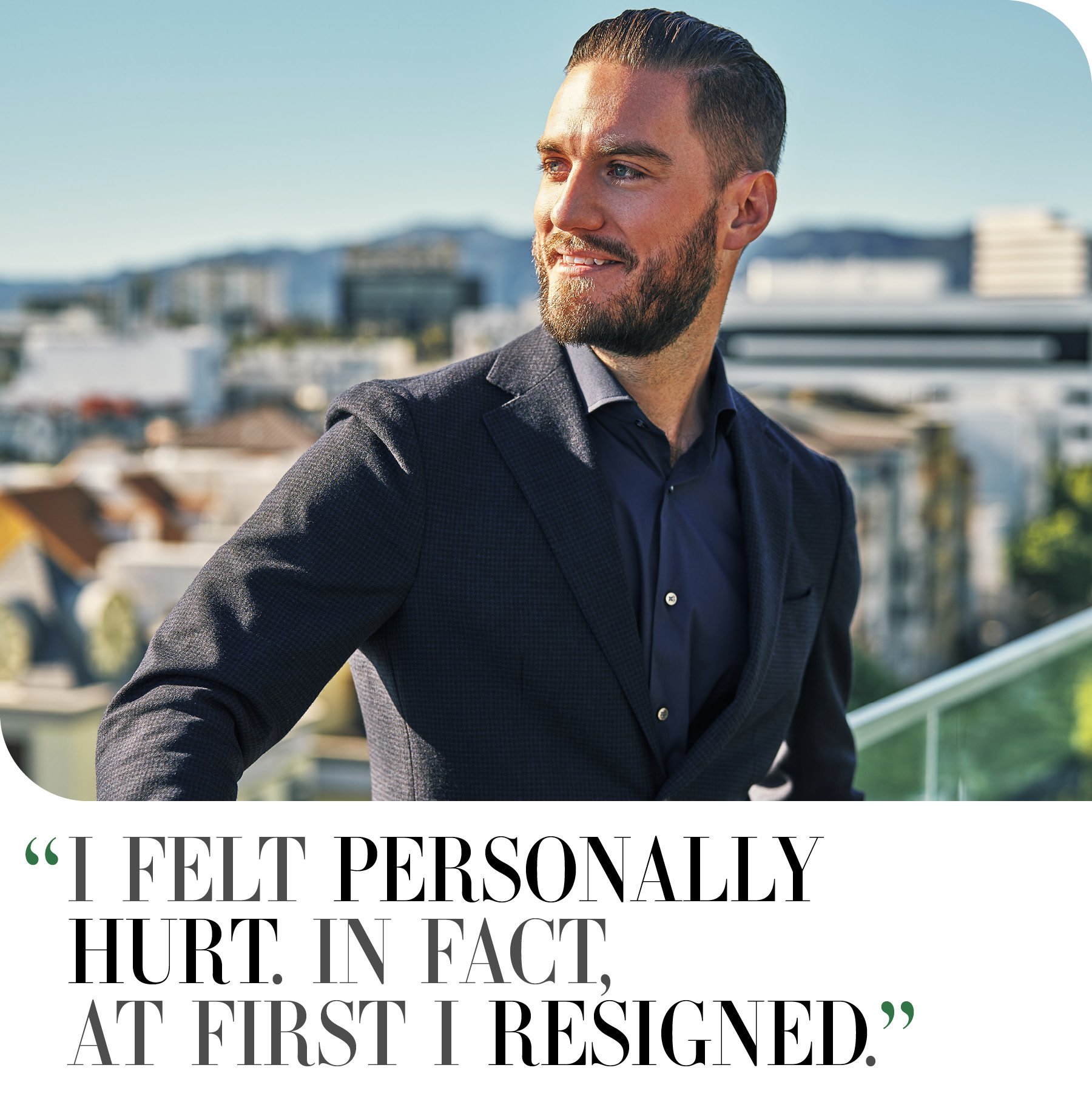Takes One To Know One: David Jepson
Telling the tales of CEOs around the world is The CEO Magazine boss David Jepson’s bread and butter. When the spotlight turns his way, however, it reveals the story of a new generation of leaders using authenticity and ambition to succeed.
Expectations are demons. Those burdened with expectations are forced to play into them, a process that can corrupt even the clearest-eyed visionary.

Such was the quandary facing David Jepson who, after seven years on the corporate ladder, took on the role of CEO at The CEO Magazine. Yes, it’s a job title that writes all its own jokes; Jepson’s heard them all. It also comes with a fair share of expectations, none that he seems particularly concerned about.
"When I started the role, a lot of people were saying, ‘What’s the vision?’ In my head I was thinking, ‘I have no idea’," Jepson says. "All I knew was that we had a great brand, a great business model and some really great people, and we needed to move forward."
The role of CEO has evolved. No longer the cigar-chomping kingpin sitting in a giant rooftop office or a Mr Burns-style autocrat, today’s successful CEO must be as transparent, accountable and empathetic as anyone in their employ.
Success to these executives is not the same as it was in decades past. There’s a much more concerted effort to satisfy not just the bottom line, but one’s soul as well.
From a very young age, the responsibility to lead fell on Jepson’s shoulders. "When I was 10, my family became foster carers. These kids came from troubled backgrounds, they were looking for role models and I was the eldest," Jepson recalls.
"I’ve carried that through the rest of my life. But I didn’t choose it," he’s quick to point out. "It’s not an ego thing and it still isn’t today."
Authentic to a fault
As a young man trying to find his feet in the high-pressure world of legal recruitment, Jepson discovered an important and effective tool that would serve him well on the path that lay ahead. "When you’re 21 and trying to sell recruitment options to senior law firm partners earning millions of pounds a year, it’s very intimidating," he says.

"What ultimately worked for me was just being authentic. I didn’t try to act like I knew more than I did. I sat in front of these guys and said, ‘If you choose me, I will work harder than anyone else’."
Authenticity would become Jepson’s familiar throughout his career. Through success or hardship, it was never far away – for better or worse. Jepson first joined The CEO Magazine as a Media Manager in 2013, but it wasn’t long before ambition and authenticity collided.
"We started with a team of five in the Stockholm office," he says. "We had an amazing group dynamic so we were making money and growing as a team."
When the first promotion came along, however, Jepson’s authenticity swung the other way. "I was told that one of the big reasons I didn’t get the role is because while everyone else was coming into the office wearing suits, I was wearing a T-shirt."
While authenticity can open doors, others are locked to all but those willing to play the game. "I wasn’t mature enough to understand that at the time," Jepson says. "Sometimes you’ve got to compromise and choose your priorities."
"I felt personally hurt," he says. "In fact, this led me to resign a few months later. But that was a key moment in my personal development. I learned that business is not personal. So I was able to take the personal stuff out of things and instantly I stopped worrying about whether or not people cared about me."
Learning through perseverance
Having decided to stick with the company, Jepson branched out. "We had an office in the Philippines, but I knew we should be in Singapore," he says. Without any presence on the ground, Jepson arrived in Singapore and started from scratch.
"The first six months – assembling a team, setting up the process – were really tough," he says. "But in a few years, we’d gone from nothing to becoming the largest revenue engine in the company."
Wins such as this – and, in the months that followed, further success revamping the Australian and European divisions – raised Jepson’s profile within the company; he soon became Global Sales Director. "A lot of business leaders struggle with building a structure that can’t survive without them, because they need to feel like they’re the boss," he says. "But this approach allowed me to build sustainable business units and therefore continue moving quickly up the company ladder."
Bearing the twin standards of determination and proven success, Jepson was on a roll. His next posting, however, would bring that momentum to a halt.
"Our first United States expedition was a bit of a disaster," he recalls. "There’s so much competition in that market, so we decided to get as strong as we could around the world, and then do the United States when we were ready."
But the American competition proved overwhelming in an unlikely way. "It wasn’t so much the big boys that were a problem; there were so many small, low-quality publications that ran a similar business model to ours. A lot of things went wrong."
Eventually, the New York office of The CEO Magazine closed. But failure in business is inevitable. It’s how one uses a loss that decides whether the next chapter is further failure or success. "This is going to sound really cliche, but you learn more from your failures than from your successes," Jepson says.
"And I think it’s important as a leader that you can speak openly, admit your mistakes and then show you understand them and how you’ve learned from them."
Despite the setbacks, the team was still able to achieve global sales targets. This gave Jepson the foundation from which to make his play for the role of CEO, a longtime dream.
"Ever since I started with the business, I’d always wanted to be the CEO," he says. "Everything I was doing was with the view to moving into that seat."
Embracing transformation
The COVID-19 pandemic proved to be the catalyst for then-CEO Dutton to hand over the keys. "Chris could see I had the energy and determination that it was going to take to get us through that particular time," says Jepson, who became CEO in June 2020.
"A lot of people asked me if it was a good time to do it, but to me the pandemic was a mandate for change. We were able to make the switch from print to digital, which would have been difficult otherwise."
Jepson’s intimate knowledge of and faith in the product, amassed during his years in sales, allowed him to successfully make the case for what he felt was an inevitable transformation.
"I knew the print product was beautiful, but I could see all the doors digital would open for us. It’s the way the world is going."
The fledgling CEO found further confidence when he brought on Sanjeev Agrawal as the company’s CFO. "Sanjeev became a mentor," he says. "Those first six months were me frantically trying to figure out how to be a CEO in a COVID-19 world, but having Sanjeev’s guidance allowed me to make some proper changes."
One of those was the creation of greater opportunities for those within the company. "People have to feel they can move up and grow, because if they don’t, they’ll leave. I’ve always said to my direct reports, ‘I’ll never be in your way, because I’m always moving and if I’m not moving, I’m gone’."
Fortunately, Jepson is in an industry that moves as fast and as often as he does. Despite the earlier failure in New York, The CEO Magazine has already returned to the United States following a successful launch in Latin America.
"We knew we needed to launch in the United States because it’s the biggest market by far. It’s also the most challenging, so I’ve taken the responsibility to be here," Jepson explains.
Here is Phoenix, Arizona, where the The CEO Magazine has based its second United States incarnation. "The opportunity for the business – in terms of revenue, in terms of brand – is huge, and the west is very attractive because of what’s there and who’s there," he says.
An ambitious vision
And what about the vision? While one now exists, it’s not static. "It’s changed over the two-and-a-half years I’ve been doing the job," Jepson says.
"I think that rather than clinging to a vision, I’ve instead tried to stick to my personal values. To be open minded and inclusive, to not be afraid of failing, and to be ambitious. We are the best executive storytellers in the world; there’s no reason whatsoever we shouldn’t be up there alongside the likes of Forbes. They’ve done it, we can do it. We’re much more than just a magazine."
What sets The CEO Magazine apart, Jepson believes, is that it lacks an agenda. "Many established media platforms present stories through a prism. When there’s that ulterior motive, I think it’s a problem."
In contrast, The CEO Magazine has the freedom to simply tell stories from the business world. "What I want – and what we are – is an open forum for executives to share their goals, ambitions and ways of thinking without being judged," he says. "We shouldn’t be saying one way is the right way, our content should provoke people to think and offer different viewpoints. It’s up to our readers to make decisions on what they think is right."
The marriage of company and ambition is the inception of great success, but how that is achieved isn’t always clear. Even now, Jepson understands the CEO doesn’t – and can’t – have all the answers. And that’s OK.
"This is my first CEO role. I’m not always going to make the right decisions. What I can do is make decisions for the right reasons. That’s all anyone can ask of you."
Shot on location at The Park Santa Monica.